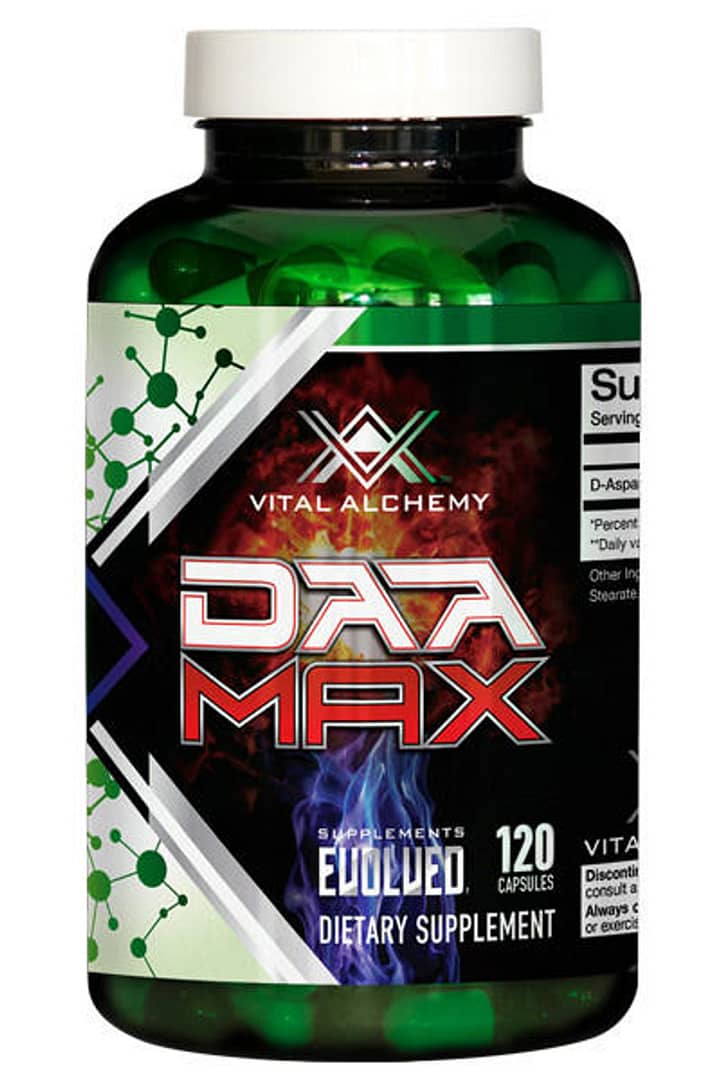
Testosterone, often hailed as the quintessential male hormone, plays a pivotal role in numerous physiological functions within the human body. Beyond its well-known influence on libido and masculinity, testosterone stands as a cornerstone in the realm of muscle building. As individuals, athletes, and fitness enthusiasts strive for peak physical performance, the quest for ways to naturally enhance testosterone levels has intensified. Enter testosterone boosters – a class of supplements designed to elevate the body’s testosterone production and potentially unlock the door to accelerated muscle growth.
In this exploration, we delve into the intricate relationship between testosterone and muscle development, shedding light on the mechanisms by which this hormone influences the body’s capacity to build and maintain lean muscle mass. Testosterone boosters, once confined to the realms of bodybuilding, have gained popularity in broader fitness circles. This article aims to unravel the mysteries surrounding testosterone boosters, providing a comprehensive understanding of their function, the science behind their efficacy, and practical insights into their integration into a muscle-building regimen.
Understanding Testosterone
Testosterone, often dubbed the “male hormone,” plays a crucial role in various physiological processes, especially in men. Understanding its functions, natural production, and its impact on muscle growth and development is fundamental in comprehending the significance of testosterone boosters.
Definition and Functions of Testosterone
Testosterone is a hormone belonging to the androgen group, primarily produced in the testes in men and in smaller amounts in the ovaries in women. It serves as a key regulator of several bodily functions, including:
- Sexual Development: Testosterone is responsible for the development of primary and secondary sexual characteristics in males during puberty, such as the deepening of the voice, growth of facial and body hair, and enlargement of the testes.
- Muscle Growth and Strength: One of the most recognized functions of testosterone is its role in promoting muscle growth and enhancing muscle strength. It stimulates protein synthesis, the process by which cells build proteins, leading to the growth and repair of muscle tissues.
- Bone Density: Testosterone helps maintain bone density and strength, reducing the risk of osteoporosis and fractures, particularly in older men.
- Libido and Sexual Function: Testosterone influences libido, sexual arousal, and erectile function in men, contributing to overall sexual health and vitality.
Natural Production of Testosterone in the Body
Testosterone production is primarily regulated by the hypothalamus-pituitary-gonadal (HPG) axis, a complex feedback loop involving several glands and hormones:
- Hypothalamus: The hypothalamus, a region in the brain, releases gonadotropin-releasing hormone (GnRH), which stimulates the pituitary gland.
- Pituitary Gland: In response to GnRH, the pituitary gland secretes luteinizing hormone (LH) and follicle-stimulating hormone (FSH) into the bloodstream.
- Testes (in Males): LH stimulates the Leydig cells in the testes to produce testosterone, while FSH supports sperm production in the testes.
Testosterone levels naturally decline with age, starting in the late twenties or early thirties, leading to various physiological changes, including reduced muscle mass, decreased bone density, and changes in libido.
Effects of Testosterone on Muscle Growth and Development
Testosterone exerts profound effects on muscle growth and development through several mechanisms:
- Stimulation of Protein Synthesis: Testosterone enhances the rate of protein synthesis in muscle cells, leading to the growth and repair of muscle tissues following exercise-induced damage.
- Increase in Muscle Mass: Higher testosterone levels are associated with increased muscle mass and strength, making it an essential hormone for athletes and individuals engaged in strength training.
- Reduction of Fat Mass: Testosterone contributes to the regulation of body composition by promoting fat loss and increasing lean muscle mass, thereby improving overall body composition and metabolic health.
Testosterone Boosters: What Are They?
Testosterone boosters have gained popularity as supplements designed to enhance testosterone levels naturally. Understanding their definition, various types, common ingredients, and mechanisms of action provides insight into their potential benefits and considerations.

Definition and Types of Testosterone Boosters
- Definition: Testosterone boosters are dietary supplements formulated to increase the production or availability of testosterone in the body, aiming to support muscle growth, improve athletic performance, and enhance overall well-being.
Types of Testosterone Boosters:
- Herbal Supplements: Derived from natural plant extracts, these boosters often contain herbs like fenugreek, tribulus terrestris, and ashwagandha known for their purported testosterone-boosting properties.
- Vitamin and Mineral Supplements: Nutrients like vitamin D, zinc, and magnesium play essential roles in testosterone production, and supplements containing these elements are categorized as testosterone boosters.
- Amino Acids and D-Aspartic Acid: Some boosters include specific amino acids like D-aspartic acid, which is believed to stimulate testosterone synthesis.
- Testosterone Precursors: These supplements contain compounds that the body can convert into testosterone, such as dehydroepiandrosterone (DHEA).
Common Ingredients Found in Boosters
- D-Aspartic Acid: A non-essential amino acid thought to enhance testosterone synthesis by stimulating the release of luteinizing hormone (LH).
- Fenugreek: An herb rich in compounds like furostanolic saponins, which may support testosterone production and release.
- Tribulus Terrestris: Another herbal remedy believed to boost testosterone levels, although research outcomes on its efficacy are mixed.
- Zinc: An essential mineral involved in various physiological processes, including testosterone synthesis.
- Vitamin D: Known to play a crucial role in testosterone production, especially when the body is exposed to sunlight.
Mechanisms of Action: How Do Testosterone Boosters Work?
- Stimulation of Hormone Production: Many testosterone boosters work by stimulating the release of hormones like LH from the pituitary gland, which, in turn, signals the testes to produce more testosterone.
- Inhibition of Hormone Conversion: Some boosters from huge supplements may inhibit the conversion of testosterone into estrogen, helping maintain higher testosterone levels in the bloodstream.
- Enhancement of Nutrient Availability: Boosters containing vitamins and minerals contribute to optimal conditions for testosterone synthesis, ensuring the availability of essential nutrients.
- Anti-Inflammatory Effects: Certain ingredients in testosterone boosters exhibit anti-inflammatory properties, potentially reducing stress and inflammation that could otherwise hinder testosterone production.
The Science Behind Testosterone Boosters
Understanding the scientific basis behind testosterone boosters involves examining research studies, potential benefits for muscle building, and considering safety considerations and potential side effects.
Research Studies Supporting the Efficacy of Testosterone Boosters
- D-Aspartic Acid Studies: Some studies have shown that D-aspartic acid supplementation may lead to increased testosterone levels. A 2013 study published in the journal “Reproductive Biology and Endocrinology” reported elevated testosterone levels in men taking D-aspartic acid for 12 days.
- Fenugreek Research: Research on fenugreek has produced mixed results. A 2016 study in the “International Journal of Exercise Science” found that fenugreek supplementation significantly increased testosterone levels in resistance-trained males.
- Zinc and Vitamin D Studies: Both zinc and vitamin D play crucial roles in testosterone production. A study in “Nutrition Journal” demonstrated that zinc supplementation increased testosterone levels in sedentary men, and vitamin D deficiency has been associated with low testosterone levels.
- Tribulus Terrestris Controversy: Despite being a common ingredient in testosterone boosters, research on the efficacy of tribulus terrestris is inconclusive. Some studies, like a 2017 review in “PLOS ONE,” found no significant impact on testosterone levels.
Potential Benefits of Testosterone Boosters for Muscle Building
- Increased Muscle Mass: Some individuals may experience an increase in lean muscle mass due to elevated testosterone levels, potentially improving strength and overall athletic performance.
- Enhanced Recovery: Testosterone plays a role in muscle tissue repair and recovery. Boosters may aid in quicker recovery after intense exercise, allowing for more frequent and effective training sessions.
- Improved Exercise Performance: Elevated testosterone levels may contribute to improved exercise performance, including increased strength, power, and endurance during workouts.
- Body Composition Changes: Testosterone boosters may assist in reducing body fat and improving body composition by promoting fat loss and lean muscle gain.
Safety Considerations and Potential Side Effects
- Individual Variability: Responses to testosterone boosters can vary among individuals. Factors such as age, health status, and genetics may influence the effectiveness and safety of these supplements.
- Hormonal Imbalance: While the goal is to enhance testosterone levels, excessive supplementation may lead to hormonal imbalances, causing adverse effects such as mood swings, irritability, and aggression.
- Cardiovascular Health: Some studies suggest a potential link between high testosterone levels and an increased risk of cardiovascular issues. It’s essential to consider cardiovascular health when using testosterone boosters.
- Liver Health: Certain ingredients in testosterone boosters may put strain on the liver. Regular monitoring of liver function is advisable for those using these supplements for an extended period.
- Regulatory Concerns: The supplement industry is not as strictly regulated as pharmaceuticals. There is a risk of contamination and inaccuracies in ingredient labeling, emphasizing the importance of choosing reputable brands.
Practical Applications: Incorporating Testosterone Boosters into Your Routine
Understanding how to incorporate testosterone boosters into your routine involves considerations such as dosage, timing, and their synergy with exercise and nutrition. It’s crucial to approach supplementation with a mindful and informed strategy to maximize potential benefits while minimizing risks.
Dosage Recommendations and Timing for Testosterone Boosters
- Individualized Dosage: Dosage recommendations can vary depending on the specific ingredients in the testosterone booster. It’s advisable to start with the manufacturer’s recommended dosage and monitor individual responses.
- Morning Dosage: Many testosterone boosters, especially those containing vitamin D, are recommended for morning consumption. This aligns with the body’s natural circadian rhythm and may enhance the absorption of certain ingredients.
- Cycle On and Off: To prevent the body from adapting and potentially reducing its natural production of hormones, consider cycling on and off testosterone boosters. For example, using them for 8 weeks, then taking a break for 4 weeks.
Combining Boosters with Exercise and Nutrition for Optimal Results
- Regular Exercise Routine: Testosterone boosters are often more effective when combined with a consistent and well-rounded exercise routine. Resistance training, in particular, has been shown to positively influence testosterone levels.
- Balanced Nutrition: A diet rich in essential nutrients like zinc, vitamin D, and omega-3 fatty acids can support testosterone production. Ensure adequate protein intake for muscle synthesis and overall metabolic health.
- Hydration and Sleep: Staying hydrated and getting sufficient quality sleep are essential factors for hormonal balance, including testosterone levels. Aim for 7-9 hours of sleep per night and maintain hydration throughout the day.
- Avoiding Excessive Stress: Chronic stress can elevate cortisol levels, which may negatively impact testosterone production. Incorporate stress-management techniques such as meditation, yoga, or deep breathing exercises.
Conclusion
In the quest for achieving peak physical performance and muscle development, the intricate relationship between testosterone and muscle building takes center stage. This exploration into the realm of testosterone boosters has provided a comprehensive understanding of their functions, the science behind their efficacy, and practical insights for their integration into a muscle-building regimen.
The foundational understanding of testosterone’s role in sexual development, muscle growth, and bone density has set the stage for a detailed exploration of testosterone boosters. These supplements, once exclusive to bodybuilding, have now gained widespread popularity in the broader fitness community. The investigation into the science behind testosterone boosters has highlighted the significance of various ingredients, from D-aspartic acid to herbal extracts like fenugreek and tribulus terrestris. The mechanisms of action, including hormone production stimulation and nutrient availability enhancement, provide valuable insights into how these supplements potentially work within the body.
Advertise with the mоѕt vіѕіtеd nеwѕ ѕіtе іn Antigua!
We offer fully customizable and flexible digital marketing packages.
Contact us at [email protected]

















